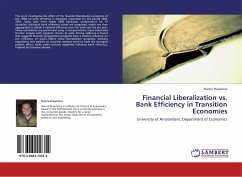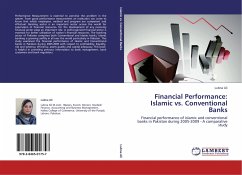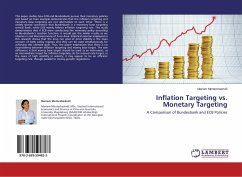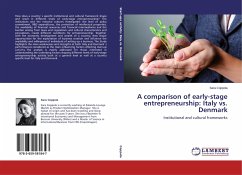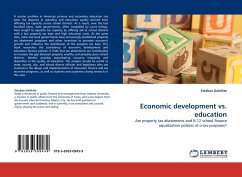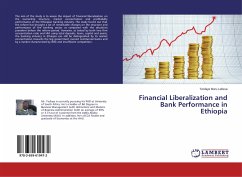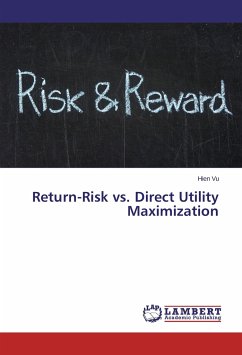This work investigates the effect of the financial liberalization programs of the 1990s on bank efficiency in transition economies for the period 1993-2005. Using data from nearly 6000 bank/year combinations for 16 countries, individual bank efficiency scores are computed, which are then aggregated to obtain a national efficiency score for each country per year. These calculations are performed using a non-parametric input-orientated frontier analysis with constant returns to scale. Strong evidence is found that suggests financial deregulation programs have a positive influence on the efficiency of banks. Within these liberalization programs, banking regulations and policies on securities markets seem to have the strongest positive effect, while credit controls negatively influence bank efficiency. Inspired by Ernestine Numan.
Bitte wählen Sie Ihr Anliegen aus.
Rechnungen
Retourenschein anfordern
Bestellstatus
Storno

